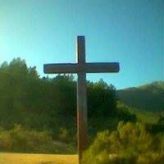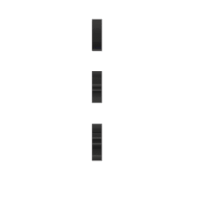
chrismarc
Advanced Member-
Posts
136 -
Joined
-
Last visited
Reputation
6 NeutralAbout chrismarc
- Birthday 07/20/1950
Contact Methods
-
Website URL
http://www.chnetwork.org/Laroseconv.htm
Profile Information
-
Location
North Lawrence, NY - USA
-
Interests
Pretty much anything involved with the Truth of Jesus Christ and His One Holy Catholic Church, which He founded on the head Apostle Peter, the receiver of the Keys to the Kingdom, as proclaimed in the Gospel according to Matthew 16:18-19. <br />To reject His Church is to reject Him.
Recent Profile Visitors
22,284 profile views
-
i don't really care what you believe, as you are just following a man-made religion and self-interpretation of incomplete Scriptures. i prefer to stick with the Church Christ founded on Peter (very clear in Scriptures). You are so typical of blinded anti-Catholics, when you cannot win a particular argument ( in this case the canon of Scripture), you merely move on to more false beliefs of His Holy Church, which have been addressed since the beginning of the Church. Until you remove your Protestant glasses, discussion with you or others is futile and i shall not waste my time and energy. Peace be with you.
-
That's right, just as we all agree with the RCC on the books of the NT, we should also agree with their divinely guided delineation of the OT. The Apocrypha consists of 11 or 12 books (depending upon how they are divided), because the letter of Jeremiah is sometimes added to Baruch. They were written between the years 300 B.C. and 100 B.C. Apart from these 11 or 12 books of the Apocrypha, there were 3 other books that were translated with the Hebrew OT
-
You obviously didn't read any of my post #33! How do expect to learn the truth about Catholicism by reading anti- Catholics like Josh MacDowell? Read and learn: The Canon of Scripture by Sebastian R. Fama There is a significant difference between Catholic and Protestant Bibles. Catholic Bibles contain seven more books than Protestant Bibles do. The 7 books, all in the OT, are Tobit, Judith, Wisdom, Sirach, Baruch and 1 and 2 Maccabees. Catholics call the disputed books Deuterocanonical and consider them to be inspired. Bible Christians call them Apocryphal and consider them to be spurious. The list of books that comprise the Bible is referred to as the canon. During Jesus' time there were two OT canons in use. There was the Palestinian canon, which is identical to the Protestant OT and there was the Alexandrian canon
-
This was a consistent teaching of all Christians until 1930 when for some reason non-Catholics strayed from the Truth.
-
None of the books in the OT were written by the Apostles! Why do you not use the complete OT as used by Jesus and His Apostles? Why do you use a bible with these inspired books removed? In the 16th century, the Protestant Reformers removed a large section of the OT that was not compatible with their theology. They charged that these writings were not inspired Scripture and branded them with the pejorative title "Apocrypha." Catholics refer to them as the "deuterocanonical" books (since they were disputed by a few early authors and their canonicity was established later than the rest), while the rest are known as the "protocanonical" books (since their canonicity was established first). Following the Protestant attack on the integrity of the Bible, the Catholic Church infallibly reaffirmed the divine inspiration of the deuterocanonical books at the Council of Trent in 1546. In doing this, it reaffirmed what had been believed since the time of Christ. The Church does not deny that there are ancient writings which are "apocryphal." During the early Christian era, there were scores of manuscripts which purported to be Holy Scripture but were not. Many have survived to the present day, like the Apocalypse of Peter and the Gospel of Thomas, which all Christian churches regard as spurious writings that don't belong in Scripture. During the first century, the Jews disagreed as to what constituted the canon of Scripture. In fact, there were a large number of different canons in use, including the growing canon used by Christians. In order to combat the spreading Christian cult, rabbis met at the city of Jamnia or Javneh in A.D. 90 to determine which books were truly the Word of God. They pronounced many books, including the Gospels, to be unfit as scriptures. This canon also excluded 7 books (Baruch, Sirach, 1 and 2 Maccabees, Tobit, Judith, and the Wisdom of Solomon, plus portions of Esther and Daniel) that Christians considered part of the OT. Needless to say, the Church disregarded the results of Javneh. First, a Jewish council after the time of Christ is not binding on the followers of Christ. Second, Javneh rejected precisely those documents which are foundational for the Christian Church
-
Let's just say it was incomplete.
-
You forgot a few paragraphs Fiosh. 1030 All who die in God's grace and friendship, but still imperfectly purified, are indeed assured of their eternal salvation; but after death they undergo purification, so as to achieve the holiness necessary to enter the joy of heaven. 1031 The Church gives the name Purgatory to this final purification of the elect, which is entirely different from the punishment of the damned. The Church formulated her doctrine of faith on Purgatory especially at the Councils of Florence and Trent. The tradition of the Church, by reference to certain texts of Scripture (1 Cor 3:15; 1 Pet 1:7) speaks of a cleansing fire: As for certain lesser faults, we must believe that, before the Final Judgment, there is a purifying fire. He who is truth says that whoever utters blasphemy against the Holy Spirit will be pardoned neither in this age nor in the age to come. From this sentence we understand that certain offenses can be forgiven in this age, but certain others in the age to come. (Mt 12:31) 1455 The confession (or disclosure) of sins, even from a simply human point of view, frees us and facilitates our reconciliation with others. Through such an admission man looks squarely at the sins he is guilty of, takes responsibility for them and thereby opens himself again to God and to the communion of the Church in order to make a new future possible. 1458 Without being strictly necessary, confession of everyday faults (venial sins) is nevertheless strongly recommended by the Church.59 Indeed the regular confession of our venial sins helps us form our conscience, fight against evil tendencies, let ourselves be healed by Christ and progress in the life of the Spirit. By receiving more frequently through this sacrament the gift of the Father's mercy, we are spurred to be merciful as he is merciful (Lk 6:36): Whoever confesses his sins . . . is already working with God. God indicts your sins; if you also indict them, you are joined with God. Man and sinner are, so to speak, two realities: when you hear "man" - this is what God has made; when you hear "sinner" - this is what man himself has made. Destroy what you have made, so that God may save what he has made. . . . When you begin to abhor what you have made, it is then that your good works are beginning, since you are accusing yourself of your evil works. The beginning of good works is the confession of evil works. You do the truth and come to the light. 1472 To understand this doctrine and practice of the Church, it is necessary to understand that sin has a double consequence. Grave sin deprives us of communion with God and therefore makes us incapable of eternal life, the privation of which is called the "eternal punishment" of sin. On the other hand every sin, even venial, entails an unhealthy attachment to creatures, which must be purified either here on earth, or after death in the state called Purgatory. This purification frees one from what is called the "temporal punishment" of sin. These two punishments must not be conceived of as a kind of vengeance inflicted by God from without, but as following from the very nature of sin. A conversion which proceeds from a fervent charity can attain the complete purification of the sinner in such a way that no punishment would remain. Basically, having known unconfessed serious sins is a one-way ticket to Hell; having any other sin or residual stain of sin is 1st a stop "in" Purgatory, then on to Heaven. Very few of us are pure enough at death to behold Our God at the moment of death.
-
This is Catholic doctrine.
-
Exactly. Even those who believe in OSAS are not sure; which means OSAS is just an allusion; either your beliefs are true or not. Every soul is important.
-
So if one still believes in their Savior Jesus, they still go to Heaven?
-
How do you know what i'm looking for?!
-
The RCC does not teach this. My question was a very relevant one and i truly wanted to know what folks believe and why.
-
If a saved person kills themself, where will they go?
-
What do you mean by 'backsliding'? How is this done?
-
i assume you speak of sinning here. This is the cross we face daily as we live in the world. How do we get back on the path with Jesus? Repentance and confession. Well said. It is ok to witness as a Christian that we have stumbled, but that through the grace and mercy of God, we are able to get up and go forth led by Christ our Savior along the narrow and rough road to His Kingdom. Like the Prodigal Son, the key is humilty, contrition, and our return to the Father who has never stopped loving us.



.thumb.jpg.e19198dca1689f6b578b5662568d36f1.jpg)
